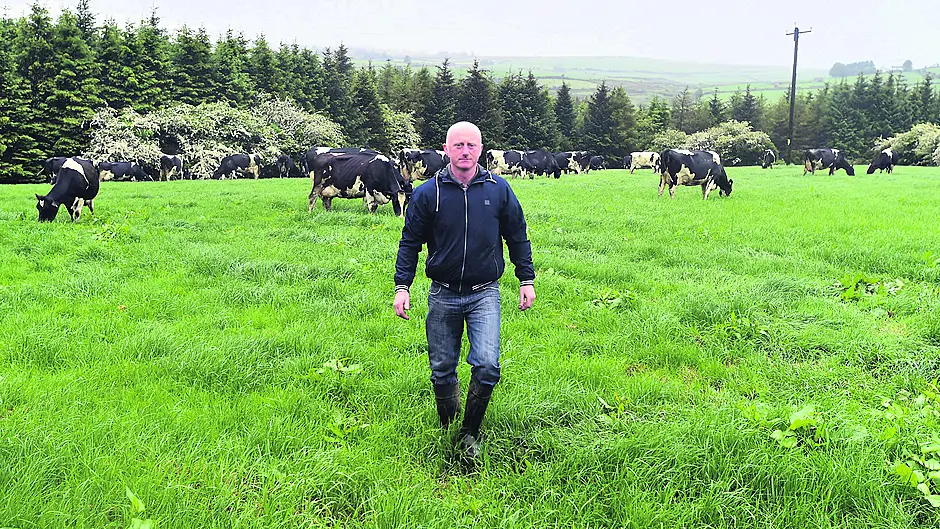In the second part of our series on Carbery’s Sustainability Award winners, we profile Drinagh farmer John Young
JOHN Young farms a 100-acre dairy farm at Curraghlickey, Drinagh, with his wife Rita and their three children. John is the fourth generation to farm this land, and his herd of 97 cows produces around 660,000 litres of milk a year.
John’s parents planted 45 acres of native Irish forestry on the farm in the 90s, and they also have 7.8 acres for wildlife. John and his family were the Drinagh Co-Op winners of the 2019 Sustainability Award at the Carbery Milk Quality Awards.
John first became interested in and aware of the benefits of incorporating sustainability into his farming practices as part of Origin Green, Ireland’s food and drink sustainability programme, which enables the industry to set and achieve measurable sustainability targets.
Over 100 independent auditors, working on behalf of Bord Bia, undertake 650 weekly engagements on farm as part of these programmes.
In addition to quality, the sustainability criteria measured and monitored are greenhouse gas emissions, biodiversity, water use, energy efficiency, soil management and socio-economic factors. The Young’s farm scored highly on their first Origin Green audit, but it was also very helpful in identifying areas to improve on.
As well as sustainability making financial sense, John is also mindful of the impact he wants to make.
‘I inherited the farm from my parents and I will hopefully pass it on within my family. I want to make my mark on the land and make it positive, leaving it in the best way I can while I’m here,’ he said.
He has received great backing from Drinagh, his co-op, in terms of advice and support around sustainability. ‘There is never an issue in getting support from Drinagh, their advisors are always on standby to give advice and help, whether its coming to the farm to measure, or going through all the bookwork and targets, I have found them to be very good,’ he said.
John has also found support through Teagasc and his discussion group, who would meet regularly to discuss various issues: ‘Sustainability is a big buzzword within my discussion group too; we are all focused on it.’
While he is positive about the support available for farmers interested in sustainability, there is also room for improvement: ‘I think a renewable energy support package would be a really good incentive - including grants for farmers who want to use their roof space for solar power generation.’ He also thinks there is untapped potential in what farms could do with anaerobic digestion and harvesting biogas from slurry and manure.
John thinks the there is space for farmers to farm commercially, and make a living, while also protecting the environment. ‘Protecting water quality, soil structure, protecting fertility in the herd, encouraging biodiversity for our bees – these are all helping the environment and compatible with farming.’








